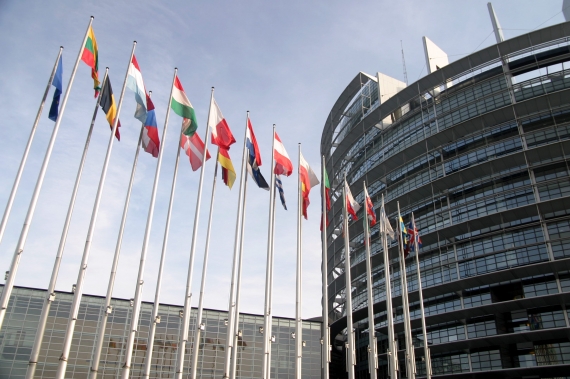
A European Union plan to tax big internet firms like Google and Facebook on their turnover was on the verge of collapsing on Tuesday after several EU governments rejected it and announced national initiatives instead.
Under a proposal from the EU's executive Commission in March, EU states would charge a 3 percent levy on the digital revenues of large firms that are accused of averting tax by routing their profits to the bloc's low-tax states.
The plan is aimed at changing tax rules that have let some of the world's biggest companies pay unusually low rates of corporate tax on their earnings.
But it requires the support of all 28 EU states and is opposed by a number of them, including small, low-tax countries like Ireland that have benefited by allowing multinationals to book profits there on digital sales to customers elsewhere.
While the harshest criticism had previously taken place behind closed doors, on Tuesday many EU finance ministers voiced their concerns at a meeting in Brussels that was streamed over the internet, allowing their disputes to be aired publicly.
Germany, which initially had backed the plan, urged for the first time a revision that would exclude from the scope of the new tax activities that could be linked to carmakers. German Finance Minister Olaf Scholz also said the tax should not be applied until the summer of 2020, and only if no global deal was reached on the same issue.
France's Finance Minister Bruno Le Maire, who has long been the main supporter of the tax, accepted delaying its implementation to the end of 2020, a major concession. But he said the EU should still reach agreement on the issue by the end of this year, to avoid states applying their own national taxes, in moves he said would harm the EU single market.
Spain and Britain have announced their own national plans to tax digital companies, and reiterated their intention to move ahead without waiting for an EU deal. The Italian finance minister Giovanni Tria said Italy would also proceed alone if no EU agreement was reached by the end of the year.
Austria, which holds the rotating EU presidency, said it will make its last attempt for an agreement at a meeting of finance ministers in December, but that divisions now appeared to be so deep that chances for a deal had narrowed considerably.
"It is very difficult to see an agreement on the digital tax because so many technical issues are not solved yet," Danish Finance Minister Kristian Jensen said.
He added that the proposed EU tax was devised in a way that would hit mostly U.S. companies and therefore it would attract U.S. retaliation.
The Irish Finance Minister Paschal Donohoe, who has for long opposed the tax fearing it could reduce revenues in Ireland, said the new levy would set a negative precedent for Europe, as it would be imposed in states where consumers are located rather than where services are produced. "We are net exporters. What kind of reaction would we have if this model was imposed on us?" he told ministers. (Reuters)
Source: www.businessworld.ie

















